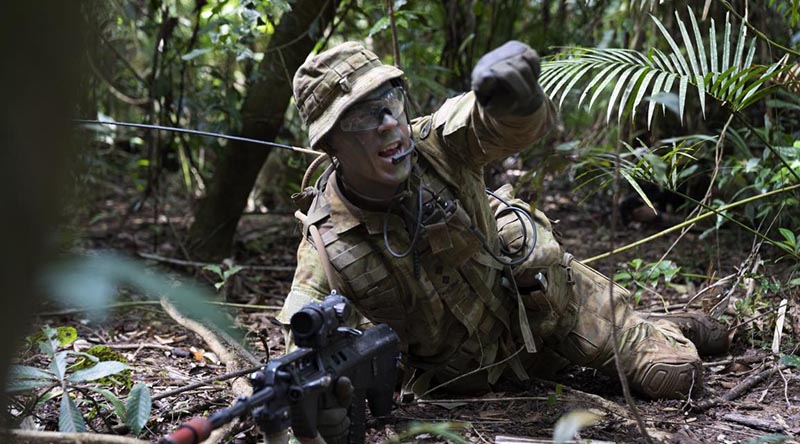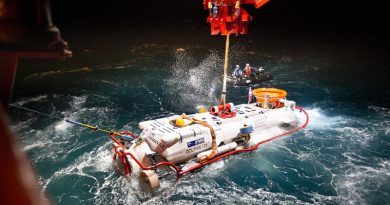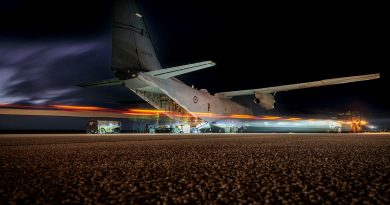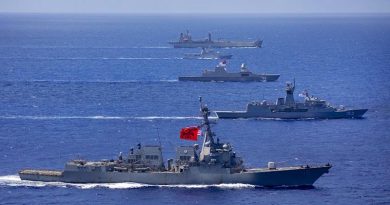Jungle trial for new infantry lieutenants

For the first time in a generation, infantry lieutenants on their Regimental Officer Basic Course have completed jungle operations as a part of their package.
CAPTION: Lieutenant Patrick Omodei, of 3rd Battalion, Royal Australian Regiment, calls out enemy target indications during the Infantry Regimental Officers Basic Course. Photo by Corporal Brodie Cross. Story by Major Carrie Robards.
The course took advantage of the air mobility provided by two of 5th Aviation Regiment’s CH-47 Chinook helicopters, airlifting the officers from Lavarack Barracks to the Tully training area.
The two-week jungle operations package allowed students to learn how to work with other capabilities such as combat engineer search teams to conduct realistic training scenarios in complex warfare.
School of Infantry instructor Captain Michael Jack said the activity was the culmination point for the course, designed to test students on how well they could conduct operations in challenging conditions.
“In North Queensland, we have access to the jungle environment, which is complex due to the vegetation and the concealment,” Captain Jack said.
“It allowed students to conduct lessons, learn from these lessons and apply the knowledge – preparing them for their future appointment as infantry platoon commanders in their battalions.”
Course participant Lieutenant Patrick Omodei, 3rd Battalion, Royal Australian Regiment, said he enjoyed applying his knowledge to a different training environment.
“The jungle environment affords a number of new considerations that we have to take into account,” Lieutenant Omodei said.
“We’ll apply this knowledge in our future operations as infantry platoon commanders.”
Commanding Officer of School of Infantry Lieutenant Colonel James Smith said the significant redevelopment of this course better prepared lieutenants for command than ever before.
“Students have tested themselves in a range of environments,” Lieutenant Colonel Smith said.
“They’ve needed to develop their quick appreciation skills and make decisions under pressure.
“This takes resilience and mental and physical fitness.
“Our training is tough, but it mirrors the demands of command in conditions they may well find themselves fighting in, in future conflicts.”
Many of the officers have now moved onto the Mechanised Regimental Officer Course with the School of Armour before returning to their battalions as qualified infantry platoon commanders.
.
.
.
.
.
.

.
.





